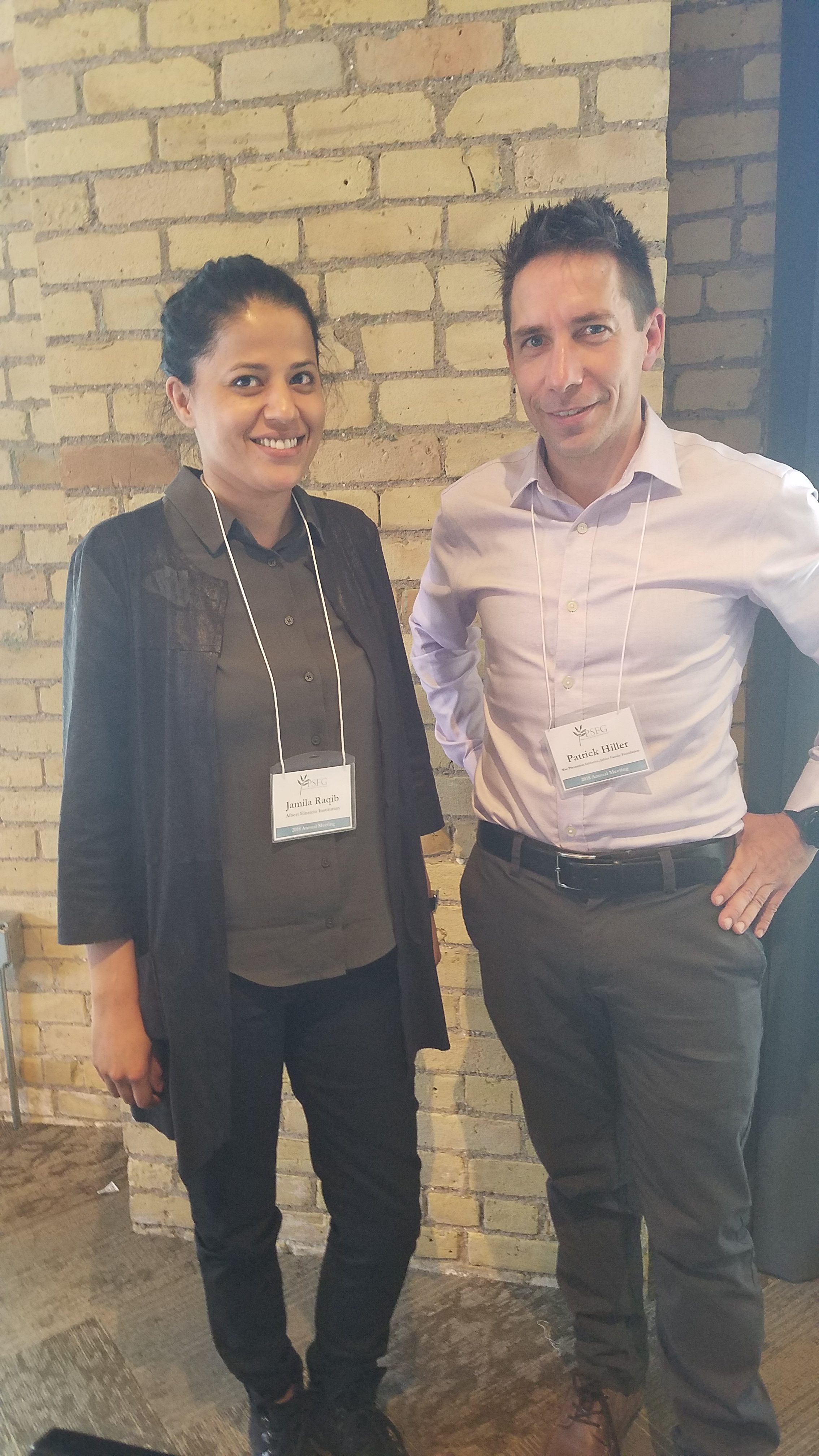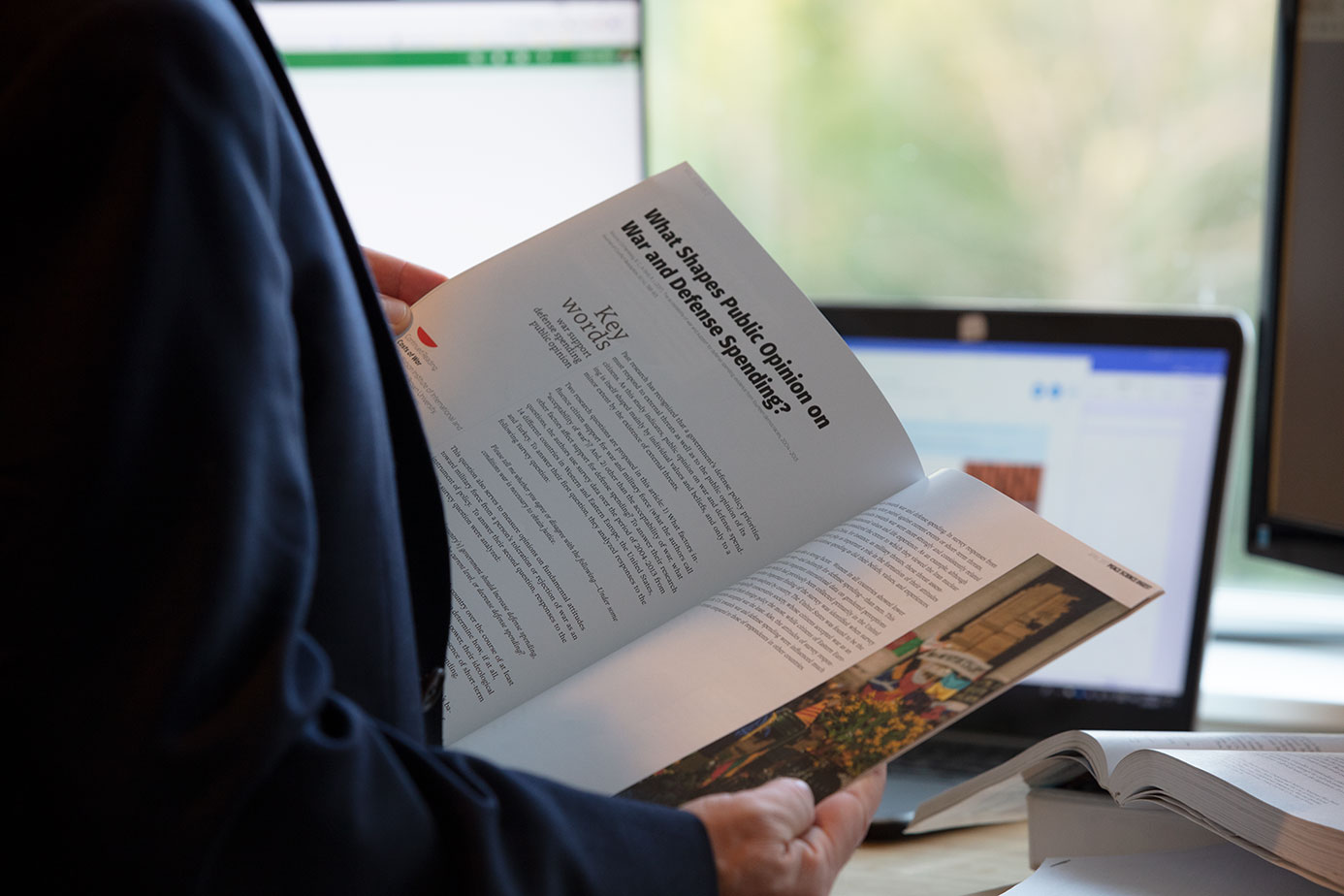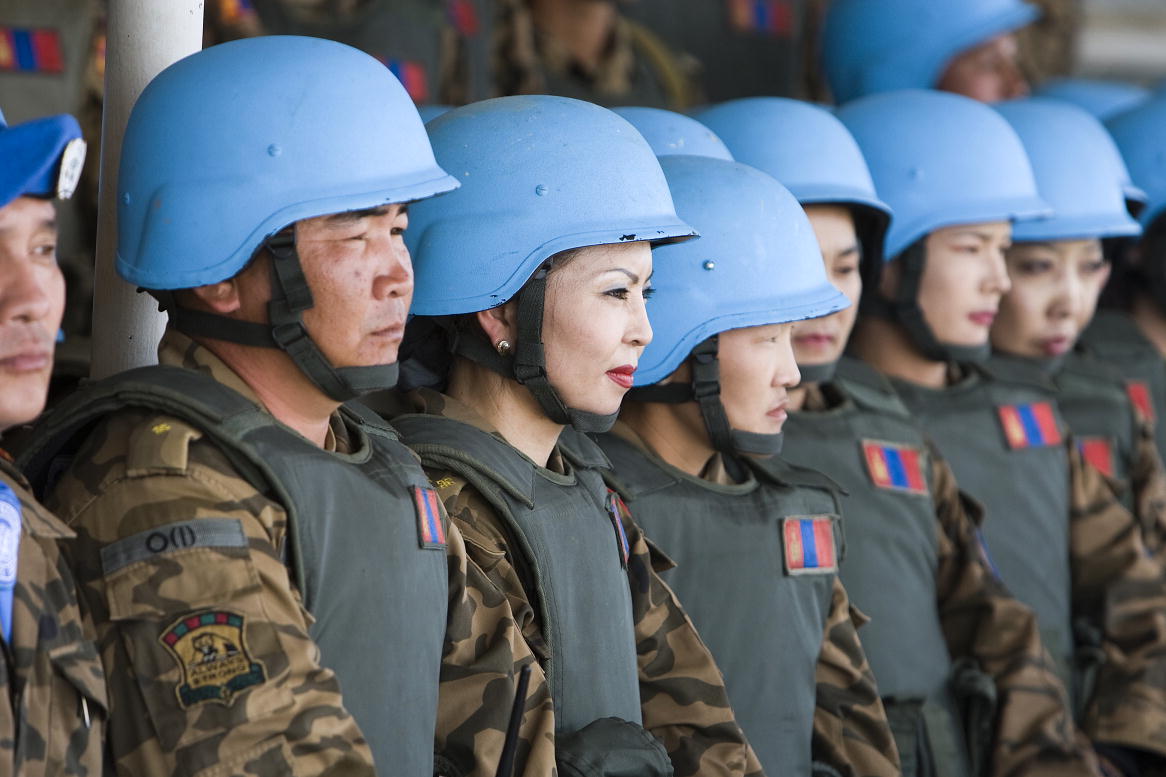Human Rights Implications of Foreign U.S. Military Bases
When host countries are less relevant to U.S. security interests, the presence of U.S. troops can lead to positive human rights practices.
Peacebuilding, Agency, and Zones of Peace
Liberal peacebuilding can sideline the agency of local actors, which accounts for widespread resistance, or even failure of these efforts.

U.S. Textbook Representations of Nonviolent Resistance During the Abolition Movement
By omitting successful nonviolent movements from history, we encourage students to accept the view that violence is required to ensure a nation’s security.
Volume 2, Issue 5
Inside this issue, we examine research that explores the mixed human rights implications of U.S. military bases abroad. Next, by looking at a sample of popular U.S. history textbooks, we learn about how nonviolence during the Abolition Movement has been “silenced” in our classrooms. Through the examination of 1990s peace talks in the Korean Peninsula, we learn about the convening power of religious civil society and the positive role the community can play in peacebuilding. Next, we consider the need for multicultural societies to ensure more inclusive engagement across deep divides, and what this engagement means when confronting violent extremism. Finally, we look at four different examples of “zones of peace” in El Salvador, Northern Ireland, Colombia, and the Philippines, and what these examples can teach us about why peacebuilding practices should support local agency instead of international priorities.
Volume 2, Issue 4
In this issue, we examine research on the impact of violent flanks on nonviolent campaigns. We take this opportunity to provide an inward reflection on the current resistance to white supremacist groups and ideologies in the U.S. Next, we discuss health effects of the Syrian War on internally displaced persons and refugees, which is highly relevant for international humanitarian organizations and campaigning. Finally, the last three entries of the Digest focus on the crucial question of how to influence armed actors—particularly non-state armed actors—in the context of civil war such that violence is prevented or terminated. The three studies examined take very different approaches to this question. While the first investigates local civil resistance and the creation of peace territories as means of resisting violence, the latter two examine the efficacy/inefficacy of more traditional tools of international politics: external support to rebel groups and sanctions against them.
Volume 2, Issue 3
In this issue, we examine research that helps us rethink our assumptions about security, violence, and development, urging us to look at these notions from the perspectives of those being “secured.” Next, by looking at a study on levels of short- and long-term quality of life after military intervention, we highlight additional perspectives on how war harms civilians—and offer viable nonviolent alternatives to military intervention. Through the examination of local entrepreneurship and peacebuilding in post-war Sri Lanka, we learn about effective economic development programs that empower business owners and provide sustainable, local avenues to economic security. In the next analysis, we consider two different studies—one on Nigerian responses to Boko Haram and MEND in Nigeria and one on Kenya’s responses to Al-Shabaab. The studies underscore the counterproductive effects of military counterterrorism strategies in sub-Saharan Africa. Finally, we look at college-level experiential learning activities and their utility in helping students internalize abstract theoretical concepts related to global complexity and conflict, helping them become more effective conflict resolution practitioners.
Special Issue: Nonviolent Resistance
In this Special Issue, we culled through recent scholarship on nonviolent resistance (also called civil resistance or nonviolent struggle) to find research that would be most useful for thinking through strategic questions, research with the clearest implications for organizing. From Standing Rock to Sweden, from Ferguson to the West Bank, join us in exploring how to employ humor in nonviolent movements, recognize diversity and privilege in transnational anti-occupation activism, sustain a broad-based struggle against racism and police violence, leverage Indigenous treaty rights to struggle against environmental exploitation, and withstand “smart” repression.
Volume 2, Issue 2
Inside this issue, you will find analysis of research highlighting the use of preventive diplomacy in Southeast Asia and how regional and international organizations can contribute to conflict resolution. We provide insights on the factors that influence public opinion on war and defense spending. We discuss key motivations behind domestic right-wing terrorism as well as a fascinating study on reasons why people leave terrorist organizations. Finally, we look at the evolution of armed United Nations peacekeeping missions.
Military Draft, Inequality, and War Support
Instituting a draft would decrease support for war efforts, as it would leave fewer people insulated from the costs of war.
Mediation Techniques for Intergroup Conflicts
During mediation, perspective-taking may lead to more positive feelings towards the other party, due increased empathy and the feeling of being heard.

Volume 2, Issue 1
In this issue, we offer analysis on mediation techniques for intergroup conflicts with specific implications on the tensions surrounding the refugee/immigrant populations. By looking at a study re-visiting military draft and inequality, we offer contemporary perspectives on war support. The examination of religious peacebuilding in Sierra Leone offers insights into how religious actors can leverage their role in societies to constructively transform conflict. In a further study, we look at peace journalism and media ethics. In a time when the term “fake news” is used for almost anything that challenges the administration, peace journalism can play a radical role in speaking up against the status quo. Finally, we look at alliances and their role in multiparty wars. This is of relevance, given the controversial role NATO plays in the current tensions between the U.S. and Russia.


